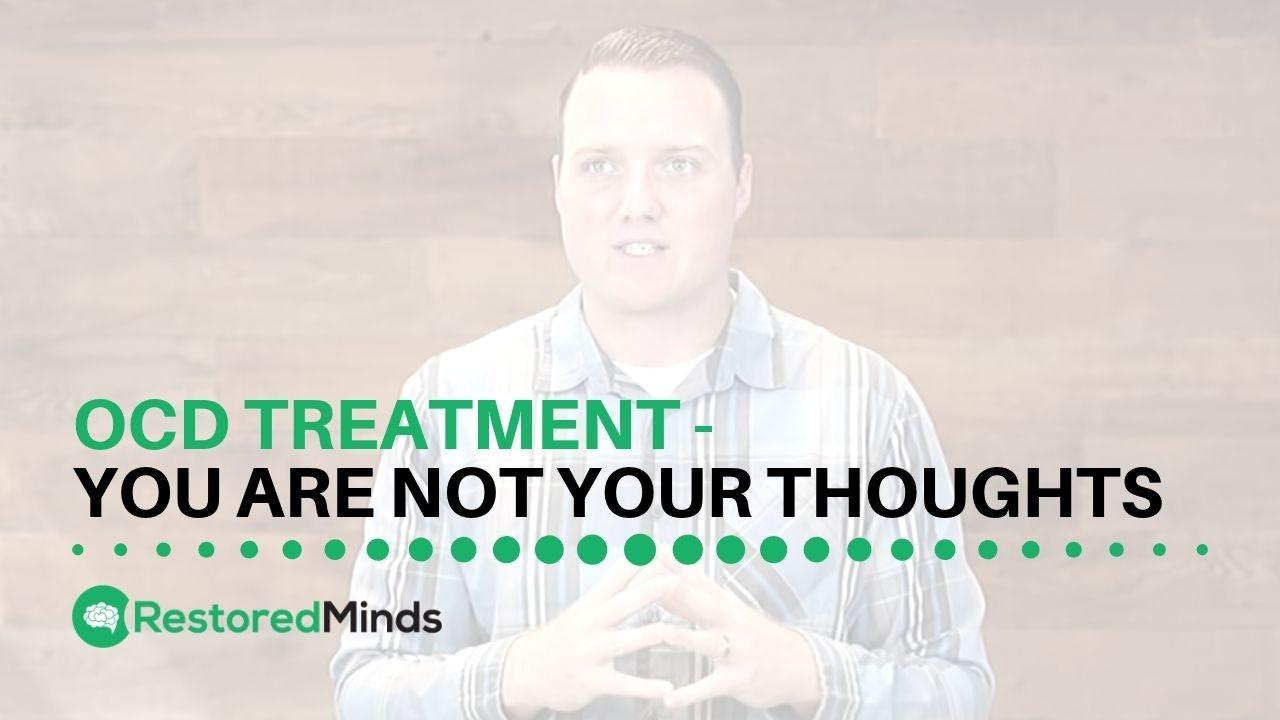OCD Treatment - You Are Not Your Thoughts
Jul 24, 2018
Title: Understanding Cognitive Fusion and Diffusion in OCD Treatment
Welcome to Restored Minds, where we explore effective techniques and concepts for OCD treatment and recovery. In this blog, we delve into an essential idea: "You Are Not Your Thoughts." This concept is pivotal in understanding and managing OCD, primarily through practices that help separate ourselves from our thoughts and feelings.
What is Cognitive Fusion?
Cognitive Fusion is a term used to describe a common cognitive distortion. It refers to a state where individuals are extremely enmeshed with their internal dialogue, believing every thought they have to be accurate or true. For people dealing with OCD, cognitive fusion can lead to:
-
Emotional Reactions:
Every thought, especially those driven by fear and anxiety, can trigger significant emotional distress.
-
Compulsive Behaviors:
To alleviate the emotional discomfort, individuals engage in compulsions, often becoming trapped in a loop.
The Goal: Cognitive Diffusion
Cognitive Diffusion is the practice of creating space between oneself and their thoughts and feelings. This separation allows us to observe our thoughts without immediate reactions, fostering a more balanced and mindful way of living. Some key benefits include:
-
Emotional Resilience:
Understanding that thoughts and feelings are temporary can reduce intense emotional responses.
-
Freedom from Compulsions:
By not acting on every thought, you can break free from compulsive behaviors.
Practicing Cognitive Diffusion through Meditation
One effective tool to achieve cognitive diffusion is meditation. Although some may feel wary about meditation, it can be incredibly beneficial for managing OCD. Here's how:
-
Daily Practice:
Aim for meditation sessions lasting 10-15 minutes every morning.
-
Use Guided Meditation:
Apps and guided sessions can help you stay focused and maximize the benefits.
-
Observe Thoughts:
Rather than engaging with each thought, practice observing them impartially.
Why Morning Meditation?
Practicing meditation in the morning can set a mindful tone for the entire day. It’s often easier to start the day with meditation rather than trying to incorporate it amidst the chaos of daily activities.
Long-Term Benefits
Consistent practice of meditation and cognitive diffusion can lead to:
-
Improved Mental Clarity:
Observing thoughts without judgment can clear mental clutter.
-
Enhanced Emotional Stability:
As you become less reactive to thoughts, emotional well-being improves.
Understanding Subject-Object Awareness
A fundamental aspect of cognitive diffusion is subject-object awareness. This concept helps you realize that you are separate from your thoughts—a key step in reducing the power they hold over you. For example, if you imagine a yellow triangle, you recognize that you are not the triangle; it’s merely a thought.
Final Thoughts
Learning to differentiate between yourself and your thoughts is crucial in OCD treatment. Cognitive diffusion, aided by regular meditation, allows you to navigate life more mindfully, aligning your actions with your long-term values rather than immediate emotional reactions.


